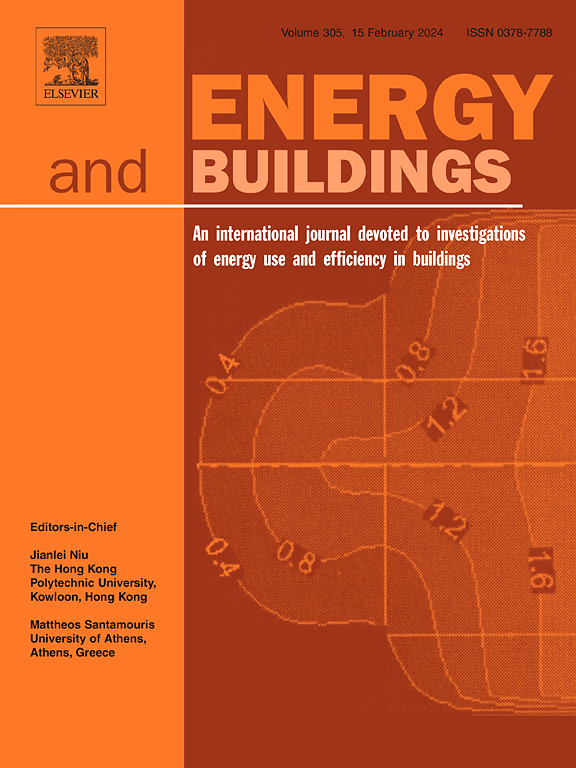基于机器学习的荷兰家庭能源消耗本地化预测模型
IF 7.1
2区 工程技术
Q1 CONSTRUCTION & BUILDING TECHNOLOGY
引用次数: 0
摘要
本研究通过当地气候因素、人口特征和建筑特征对荷兰11年来家庭能源消耗(HEC)的影响,探讨了邮政编码的年度能源消耗。该研究汇总了邮政编码和街道级别的年度数据,提供了温度、城市化、家庭规模、建筑年龄和建筑表面对电力和天然气消费模式的影响的包容性分析。使用机器学习方法,特别是XGBRegressor时间序列模型,研究发现,前几年的消费,建筑年龄和建筑表面在邮政编码水平是预测年能耗在街道水平的主要因素;人口因素和气候因素在这一聚集水平上的影响相对较小。该研究的结果强调了能源政策和基础设施规划的重要性,这些政策和规划应对当地需求敏感,并提高能源在环境变化中的适应能力。本研究为政策制定者提供了在环境变化背景下寻求提高能源弹性的可行建议,从而增加了当前关于气候变化适应的辩论。本文章由计算机程序翻译,如有差异,请以英文原文为准。
Machine learning-based localized predictive modeling of household energy consumption in the Netherlands
This study explores annual energy consumption by postal code through the impact of localized climatic factors, demographic traits, and building features on Household Energy Consumption (HEC) in the Netherlands over 11 years. Aggregating annual data at the level of postal codes and street level, the research provides an inclusive analysis of the impact of temperature, urbanization, household size, building age, and building surface on electricity and gas consumption patterns. Using machine learning methods, specifically the XGBRegressor Time Series Model, the study finds that previous years’ consumption, building age, and building surface at the postal code level are the primary factors in predicting annual energy consumption at the street level; demographic factors and climatic factors have a relatively lesser impact at this level of aggregation. The study’s findings highlight the importance of energy policies and infrastructure planning that are sensitive to local needs and increase energy resilience in environmental change. This research adds to the current debates on climate change adaptation by providing actionable recommendations to policymakers seeking to improve energy resilience in the context of environmental change.
求助全文
通过发布文献求助,成功后即可免费获取论文全文。
去求助
来源期刊

Energy and Buildings
工程技术-工程:土木
CiteScore
12.70
自引率
11.90%
发文量
863
审稿时长
38 days
期刊介绍:
An international journal devoted to investigations of energy use and efficiency in buildings
Energy and Buildings is an international journal publishing articles with explicit links to energy use in buildings. The aim is to present new research results, and new proven practice aimed at reducing the energy needs of a building and improving indoor environment quality.
 求助内容:
求助内容: 应助结果提醒方式:
应助结果提醒方式:


